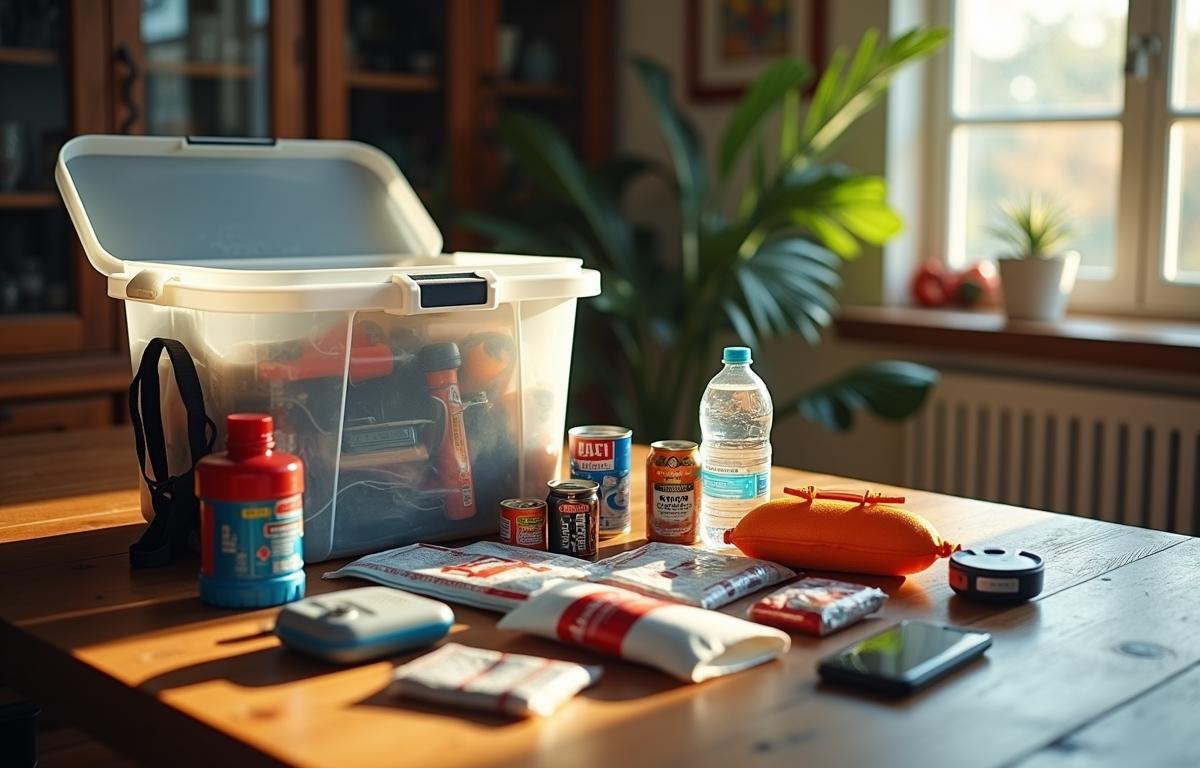Emergency Kits Every Home Needs for Power Outages
When power outages unexpectedly occur, every household should have emergency kits ready. No one wants to be left scrambling in the dark, trying to locate a flashlight or charge a phone. A little preparation goes a long way toward staying calm and safe.
Power failures can happen anytime due to storms, natural disasters, or unexpected grid overloads. Having the right set of supplies not only makes life easier but also helps keep loved ones protected. It’s about more than just waiting it out; it’s about being ready for whatever comes next.
Contents
The Importance of Being Prepared
Many people underestimate how disorienting a sudden blackout can be. Without a reliable source of light or basic supplies, frustration can turn into panic. By following tried-and-true disaster preparedness tips, you can maintain a sense of control when everything else goes dark.
During prolonged home power outages, critical appliances like refrigerators and heating systems shut down. That can mean spoiled food, lack of warmth, and increased stress. Building your own 72-hour kit ahead of time helps you ride out the storm with confidence.
Essential Items for Power Outages at Home
An emergency kit for power outages typically starts with lighting solutions. You might already have flashlights and candles, but consider adding battery-powered lanterns for hands-free illumination. Don’t forget extra batteries in various sizes, so you never run out of juice when you need it most.
Keep a battery-powered radio or hand-crank radio as well, so you can stay informed about local conditions. Add a portable phone charger that doesn’t rely on wall power, along with a pre-charged backup battery. If you have children, pack some comforting items like small toys or books to keep them occupied.
Focus on Water and Food Supplies
For a lot of people, water is always available from the tap until the pump doesn’t work. Store at least one gallon per person per day for several days, plus a bit extra for cooking. Pair that with non-perishable foods like canned beans, peanut butter, and energy bars to maintain energy levels.
Creating a Well-Rounded Home Emergency Kit
A well-rounded home emergency kit goes beyond flashlights and snacks. Think about critical items like a first-aid kit, complete with bandages, antiseptics, and any prescription medications. Consider the unique needs of your household, whether it’s pet supplies or baby essentials.
Another aspect to keep in mind is how you will handle sanitation when the power goes out. You may need trash bags, moist towelettes, and disposable utensils if the water supply becomes limited. A little foresight ensures you won’t have to improvise in uncomfortable or unsanitary conditions.
Staying Connected and Safe During Blackouts
Home phone lines might still operate, but wireless service can be spotty during severe outages. Keep a list of emergency phone numbers on paper, so you’re not relying on your cellphone’s battery. If you have neighbors with special needs, staying in touch can help everyone make it through safely.
Protecting Your Home and Family
Storm preparedness includes more than stocking up on supplies. Inspect your home to ensure you have surge protectors and check for potential fire hazards. If you have a fireplace, stash enough firewood in a dry place.
Winter storm safety often involves preparing for low temperatures and potential ice damage. Layering up in warm clothes helps, but a propane or kerosene space heater might be a life-saver when used correctly. Always keep proper ventilation in mind and follow the heater’s safety guidelines to avoid accidents.
Backup Power Considerations
Some families consider installing a generator for longer outages or electric grid failures. Portable generators can keep essential appliances running, but remember to operate them outdoors, away from open windows. For a more permanent solution, a standby generator wired into your home’s electrical system and emergency kits can offer peace of mind.
Handling Extended Outages with Confidence
Prolonged blackouts require extra planning, and in some cases, you may even need to rely on emergency electrical repair services if the outage is caused by an issue within your home’s electrical system.
Staying safe in the dark involves more than having great flashlights. Reflective gear and glow sticks can help you navigate around the house without relying on a single light source. Kids find glow sticks fun, and they double as an easy way to keep track of family members.
Checking and Updating Your Supplies Regularly
Store your emergency kits where you can reach them easily. Every few months, check expiration dates on food and batteries. Rotating supplies keeps everything fresh, so you’re never caught off guard.
Maintaining Peace of Mind Year-Round
Calm thinking is easier when you’re confident that everything you need is within arm’s reach. Organizing your supplies in a backpack or plastic bin keeps them secure and portable. If a sudden evacuation is necessary, you can grab your kit and go without hesitation.
Encourage everyone in your household to know where items are stored and how to use them. Go over simple tasks like changing flashlight batteries or operating the battery-powered radio. With a clear plan in place, you eliminate the guesswork and empower each family member to help out.
Whether it’s a short blackout or a days-long disruption, having emergency kits help you keep stress in check. Neighbors, friends, and extended family might need assistance, and you can coordinate if you’re prepared. Knowledge and readiness go hand in hand, ensuring you never feel helpless when the lights go out.
By assembling these essential components and reevaluating them regularly, you set yourself up for a smoother experience during any power outage. No matter how unpredictable the weather or the grid, having robust emergency kits ready can make an enormous difference. Focus on what truly matters: keeping your household comfortable, safe, and prepared for whatever challenges come your way.

